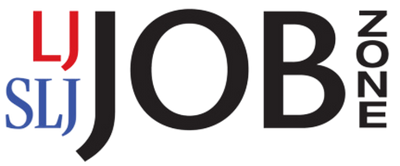STATE CERTIFIED PEER RECOVERY SUPPORT SPECIALIST
Job Description
Job DescriptionJob Summary: The Peer Support Specialist role is to use their own unique, life-altering experience to guide and support others who are in recovery from substance abuse. The PRSS will serve as a role model, mentor, advocate, and motivator to recovering individuals in order to help prevent relapse and promote long-term recovery.
Qualifications and Education Requirements
● High school diploma or GED
● WV Peer Recovery Support Specialist Certification
● Must have been in recovery for a minimum of two years and be involved with a personal support and / or recovery system and not have received SUD treatment for the preceding six months
● Attestation of Recovery Statement
● Lived experience/ history of receiving mental health services, substance abuse disorder, or trauma
● Ability to work well independently and in a team environment
● Ability to work with a diverse group of people
● At least 18 years of age
● Valid driver's license and auto insurance preferred
Preferred Skills
● Effective verbal and written communication skills
● Must be resourceful, an independent and critical thinker, and self-sufficient
● Ability to prioritize tasks, exercise sound judgment and maintain confidentiality with sensitive information
● Proficient understanding of basic office applications and computer skills.
Certifications All certifications will be required to be completed prior to start date with revalidation per company’s policy
● HIPAA
● Adult CPR - First Aid
● Blood Borne Pathogens
CPI validation required within 30 days of employment with revalidation per company’s policy.
Role and Responsibilities
● Assist individuals with recovery planning, relapse prevention, housing needs, and education/employment
● Assist recovering persons to identify their personal interests, goals, strengths, and weaknesses regarding recovery.
● Maintain project logs, reports, and records of activities with clients in appropriate files or database.
● Exhibit a non-judgmental approach, listen with empathy, and have the ability to support people in discovering their own solutions
● Ability to share personal lived experience in a way that empowers others
● Provide a model for both people in recovery and staff by demonstrating that recovery is possible
● Provide education and advocacy within the community and reduce the stigma and discrimination against people with mental health and substance use disorders
● Inspire hope and create connection for people new to recovery
● Facilitate the transition from a professionally directed service plan to a self-directed recover plan for their clients.
● Support Connections to community based, mutual self-helps groups. Link individuals to appropriate professional resources when needed. Provide vision-driven hope and encouragement for opportunities at varying levels of involvement in community-based activities (e.g., work, school, relationships, physical activity, self-directed hobbies. Etc.).
● Actively identify and support linkages to community resources (communities of recovery, educational, vocational, social, cultural, spiritual resources, mutual self-help groups, professional services, etc.) that support the recovering person’s goals and interests. This will involve a collaborative effort including the recovering person, agency staff, and other relevant stakeholders.
● Identify barriers (internal and external) to full participation in community resources and develop strategies to overcome those barriers. ● Participate in verbal de-escalation and physical interventions in emergent situations and is able to assist other staff as needed to maintain a safe healing environment for all.
● Other duties as directed
